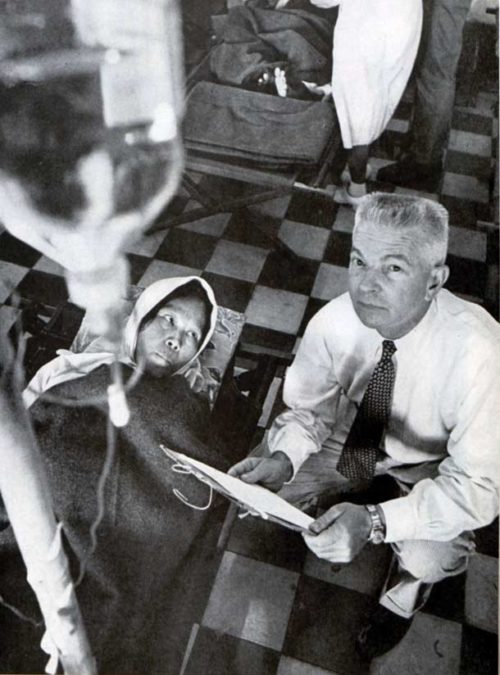
Harry Redl, © SEPS
Much has been said about the horrors of the Vietnam War. One could almost forget that many American servicemen acted with extraordinary valor. For an upcoming special edition of the Post, “Heroes of Vietnam,” we are recalling the forgotten stories of the good guys.
Like a biblical plague, cholera had struck Vietnam, and in the dim wards of a rambling, mildewed Saigon hospital, rows of patients lay stretched out amid a clutter of tubes, jars, and buckets. With alarming regularity, pedicabs, taxis, or ambulances pulled up to disgorge fresh victims — bodies showing little sign of life other than a look of fear in their sunken eyes. To them, cholera meant certain death, unless a miracle came to pass. A U.S. Navy doctor and his crew brought about that miracle by saving almost every life. One among the survivors, a haggard Vietnamese woman, murmured, “These Americans must be gods.”
Navy’s Medical Research Unit in the Far East, hardly resembles a deity. He is a laconic, professorial gentleman whose only ordained law is hard work. He and his team are developing a vaccine to prevent trachoma, an eye infection that cripples at least 400 million people in Asia, Africa, Central and South America, and the Caribbean, and they are isolating the mosquitoes that transmit Japanese encephalitis, which inflames the brain. They are working to wipe out schistosomiasis, caused by a parasitic worm that penetrates the skin and damages the intestines and paragonimiasis, a debilitating lung ailment spread by parasites lodged in fresh-water crabs.
But the real medical challenge in the Orient is cholera, which kills hundreds of thousands yearly. When an epidemic hit Vietnam recently, Phillips and his unit went into action with the drive of commandos attacking a hostile shore. Helped by the local American AID mission and an Army medical-research unit, Phillips’ men quickly set up an establishment of their own. In a suburban hospital, they took over three bungalows — one had formerly housed lepers — and transformed them into wards. They turned an oversized broom closet into a laboratory, and at a nearby building they opened a class to instruct Vietnamese medical men in modern techniques.
Cholera kills by dehydrating the body, and in acute cases, as many as four gallons of fluid can be lost in 24 hours through diarrhea. Phillips’ treatment, a modification of traditional therapy, consists of simply replacing the body fluids as plentifully and as rapidly as possible. “Cholera cures itself, like a common cold,” Phillips explains. “The problem is to keep the patient alive by giving him enough fluids fast enough. If he has no other complex diseases, any patient who can get treatment will survive.”
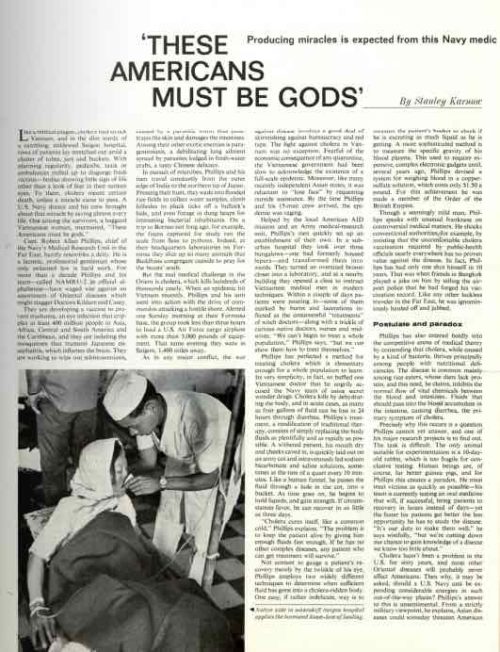
This article is featured in the September/October 2017 issue of The Saturday Evening Post. Subscribe to the magazine for more art, inspiring stories, fiction, humor, and features from our archives.
Coming soon: Heroes of Vietnam, A Saturday Evening Post Special Collector’s Edition. Find out more.
Become a Saturday Evening Post member and enjoy unlimited access. Subscribe now
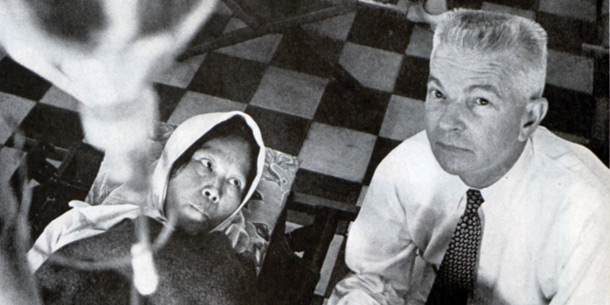
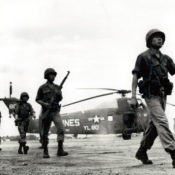
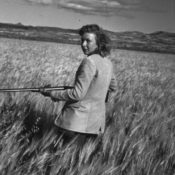
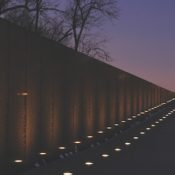
Comments
There are many great stories of the Yanks down under during the war against the Japanese. They taught us many lessons about humanity and they were always generous
during the World War 11 American army doctors in Australia would treat ordinary Australian civilians in outlying areas where the was no medico for ordinary colds and flues and sicknesses and the Aussies remained always grateful passing down stories to their kids.